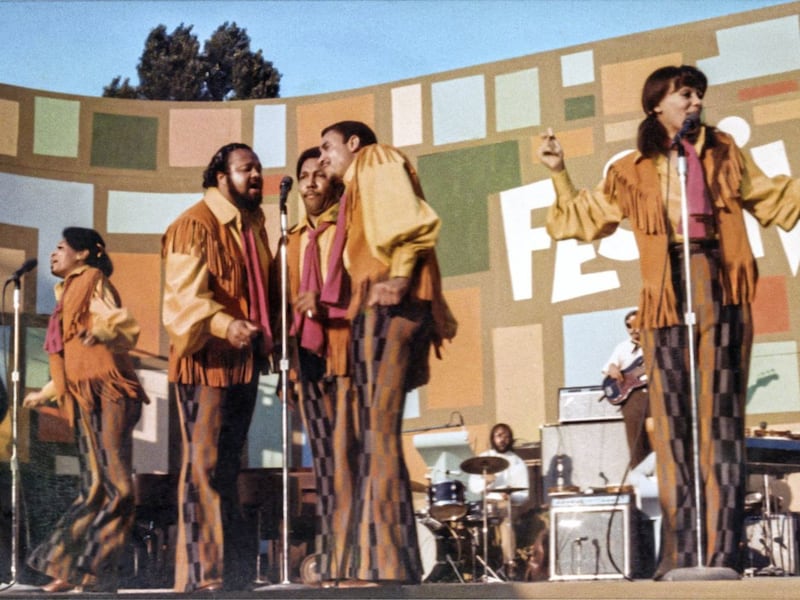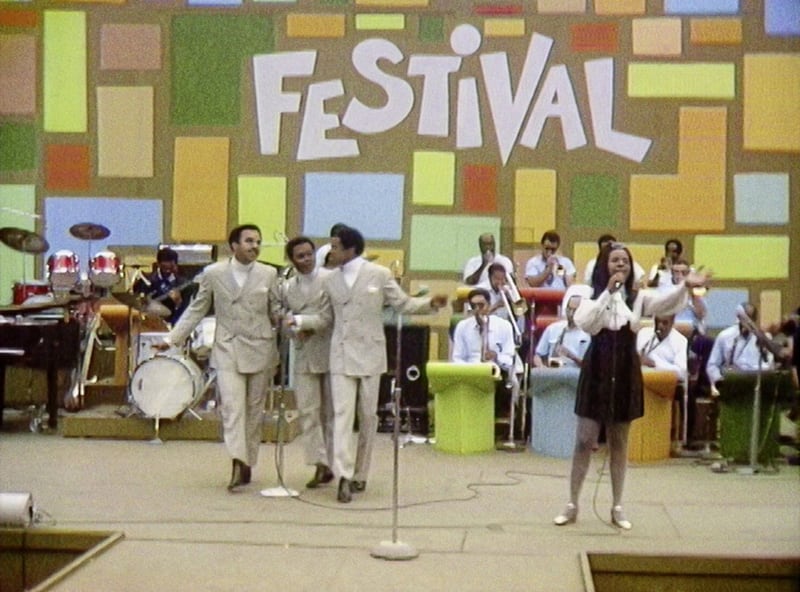IN the summer of 1969, two major music events took place in New York – Woodstock, which is still globally famous more than 50 years on, and the Harlem Cultural Festival, which has been largely lost to time.
The latter, held in Harlem to celebrate African American music and culture, came to be known as the 'Black Woodstock' but has none of the cultural legacy of the other event, even though it boasted music superstars including Stevie Wonder, Sly And The Family Stone, 5th Dimension, Nina Simone and Gladys Knight.
It was watched by hundreds of thousands of fans and while it was all filmed, the footage was never shown and was almost completely forgotten – until now.
Ahmir 'Questlove' Thompson, the drummer, DJ, author and The Roots frontman, makes his directorial debut with Summer Of Soul (...Or, When The Revolution Could Not Be Televised), a new documentary about this landmark event and how it came to be that even a music scholar such as himself did not know much about it.
"The first time The Roots ever went to Tokyo, I was at a musical cafe called the Soul Train Cafe and I saw maybe a two-minute clip of Sly And The Family Stone," he says.
"The camera was so far away and I didn't realise that was the Harlem Cultural Festival. I just assumed that because festivals weren't really a thing in the United States at all, it was somewhere in Europe.
"My first question was just 'How did this sit in a basement for 50 years, and nobody cared about it?'
"There was Sly And The Family Stone and Stevie Wonder and Nina Simone, and Ray Barretto and The Chambers Brothers - this is nothing to sneeze at."
When he was approached to make Summer of Soul, Thompson says he was "not overwhelmed but I was nervous".
"This is the time that I'm using my creativity like this," he explains.
"I know that creativity is transferable. I've written books, I've taught class, I've done podcasts, I've made music, I've scored music - but in telling a story with the visual medium, I knew that I this is my chance to make history right.
"So I don't even see this as a directorial debut, more than I just see it as my duty to let the world know that we were here.
"We know about Woodstock, but this was right there with it and this should have been held up in the same light and be an equivalent so this is my chance to do that."
More than 45 hours of footage was shot before it sat languishing in a basement unseen for half a century and Thompson combed through all of it to craft the film, while also setting it in the context of what it was like to be black and live in Harlem at the time.

It highlights police brutality and injustice and the frustration felt about the Moon landing at the same time poor people in Harlem were suffering.
But Thompson says this framing was only introduced late in the process, when the Black Lives Matter movement came under the spotlight during the summer of 2020, at the height of the global pandemic.
"We planted the seeds of the Summer Of Soul movie in 2017 and up until late 2018, I was thinking of just a straight music performance and not taking the viewer out of the festival," the 50-year-old musician remembers.
"But as time kept marching on, this film wrote itself, and to do a lion's share of the editing and storytelling during the pandemic, and the year that all of us had in the last year, it wasn't lost on me that we were living in the exact conditions that were happening 50 years ago.
"I felt that that was a way to connect everyone together.
"Whereas normally a film of this calibre would just attract people that either lived there at the time who might take their grandchildren to see this film to show 'This is the music I liked,' I wanted to make sure that I cover everything.
"If you lived during that time period, you knew these artists, you knew the issues. If you were in the middle of my generation, you know these artists from sampling and us loving hip hop culture.
"And then with Gen Z and with millennials, they're living in the same exact conditions that cause that and I just felt that this included everyone.
"I really wanted to let people know how important it is to use your voice for political activism, and I think this film shows that well."

One of the music groups that took to the stage at the festival was 5th Dimension, famous for hits including Aquarius/Let The Sunshine In from the musical Hair and star Marilyn McCoo (77) still recalls the feeling of anticipation before she went on stage.
"I remember being nervous in the dressing room, because we're going to be performing in front of this audience that knew about us, but we had a chance to show them more about the 5th Dimension than just Up, Up And Away (their 1967 hit) and Aquarius/Let The Sunshine In," she says.
"Because these were people that didn't necessarily have the money to go out and buy tickets to come and see the group, so we were letting them know more about us.
"And it was a beautiful audience. It was families and festive and everybody was excited about having the music being presented to them, it was a glorious afternoon.
"We were always known as the black group with the white sound, as people thought of us as only doing pop music, but we got a chance to show the other kinds of music that we did there."
Summer of Soul shows how emotional it was for some of the musicians to see footage of themselves as young performers that they thought might never surface.
"We knew that that the festival was being filmed, but we didn't know what happened to it," says McCoo's bandmate and husband Billy Davis Jr (83).
"It was just stored away, and why was it stored away, we don't know. But we're so thankful that it was found 50 years later, because we feel like 50 years later, it's making a better statement today than it would have in 1969."
Summer Of Soul (...Or, When The Revolution Could Not Be Televised) is in the QFT Belfast from today and streams on Star on Disney+ from July 30.
Marilyn McCoo and Billy Davis Jr's album Blackbird: Lennon-McCartney Icons is out now.








